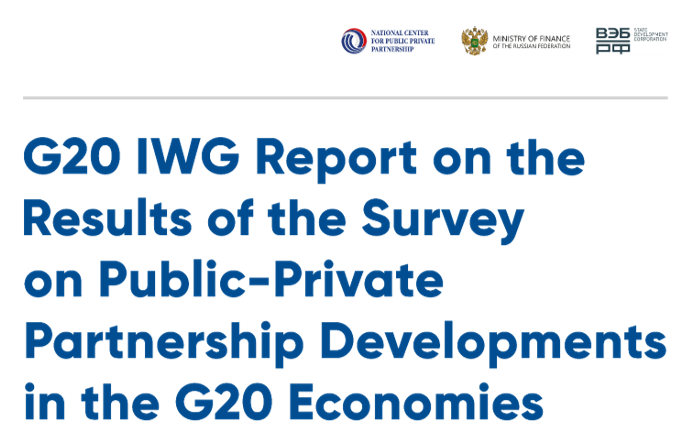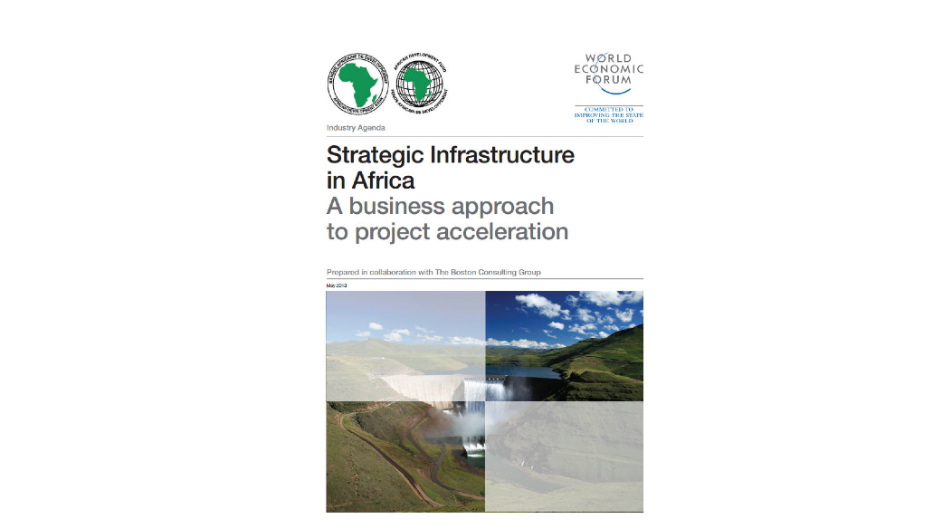Publications
Filter by
566 results found
Risk allocation is at the centre of every PPP transaction, and a deep understanding of the risk allocation arrangements is a precondition to the drafting of every successful PPP contract.

The paper Partnering to Build a Better World: MDBs Common Approaches to Supporting Infrastructure Development presents a brief description of how MDBs work with their Borrowing Member Countries (BMCs) .


InfraTech is defined by the G20’s Infrastructure Working Group (IWG) as “the integration of material, machine, and digital technologies across the infrastructure lifecycle” and is supported by three reference notes produced in collaboration between the G20 IWG, the World Bank and the GI Hub: 1) The InfraTech Stock Take of Use Cases; 2) The Value Drivers for InfraTech; and 3) The InfraTech Policy Toolkit.


In just a few years, ESG, also known as sustainable or responsible investing, has moved from a slightly idealistic nicheto front-page, a mainstream dimension for investors, one that strongly influences the performance and resilience of their investment over time. This is particularly the case in infrastructure, in view of its wide reaching and long-term consequences for the community.

A series of methodologies and tools based on the evidence-based infrastructure (EBI) approach, helping governments assess and improve their capacity to plan, deliver and manage infrastructure systems.


The paper is part of a series of 19 papers and a synthesis report produced by the International Transport Forum’s Working Group on Private Investment in Transport Infrastructure.



The G20 Infrastructure Working Group (IWG) Survey on PPP Development underlying this Report provides reference on the frameworks for infrastructure financing through Public-Private Partnership in G20 economies


This program aims to give Victoria the world class infrastructure and services needed to drive continued economic growth, cater for a growing population and secure the State’s future prosperity.


The Reference tool is meant to serve as a practical tool to help governments and other stakeholders understand and implement the critical success factors that deliver inclusive infrastructure.

The Project Complexity and Risk Assessment Tool supports implementing agencies to accurately determine the level of risk and complexity of a project, for the purposes of project approval and expenditure authority.

The objective of the report and the accompanying index is not simply to rank countries, but to use score movements as a benchmark from which to investigate trends, identify successful PPP performers, and focus on the approaches that can facilitate a better understanding of common challenges and best-practice standards.

This paper provides a preliminary assessment of expected benefits of government-backed identification systems for firms across a variety of industries.


This page discusses the need for legal reform to enhance the PPP environment in EBRD regions.



This series provides an overview of public-private partnership stories in various infrastructure sectors, where IFC was the lead advisor. This specific case relates to the NAIA Expressway project in Philippines.






This report presents a selection methodology that proposes a common language with clear economic, technical, social and regional criteria to identify infrastructure projects with the potential for acceleration.



OECD Investment Policy Reviews present an overview of investment trends and policies in the countries reviewed, using the OECD Policy Framework for Investment to assess the climate for domestic and foreign investment at sub-national, national or regional levels. They then propose actions for improving the framework conditions for investment and discuss challenges and opportunities for further reforms.



 View the PPP Risk Allocation Tool website
View the PPP Risk Allocation Tool website

